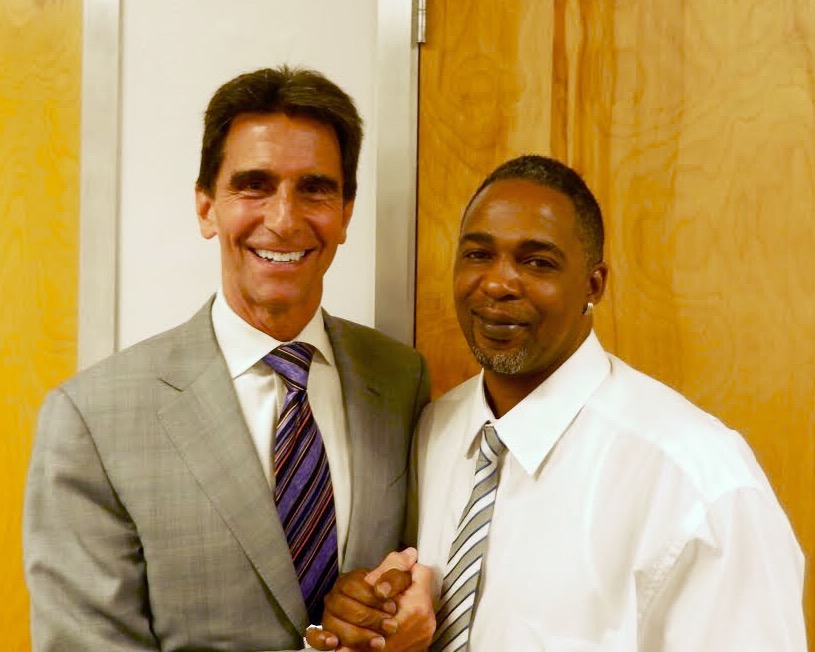This year NCIP continues support for policies that prevent wrongful convictions, free innocent people from wrongful incarceration, and provide support and compensation for exonerees. Our prevention work focuses on eyewitness misidentification and false confessions as leading causes of wrongful conviction. In partnership with other innocence projects and criminal justice stakeholders, we are pursuing avenues to advance evidence-based eyewitness identification practices throughout California. To reduce false confessions and to chronicle interrogation practices, we hope to expand on NCIP-sponsored Senate Bill 569 (2013 Lieu), which requires recording of custodial interrogations of juveniles accused of murder, to include adults.

California Senator Mark Leno and NCIP exoneree Maurice Caldwell at the state capital after testifying at a Public Safety Committee hearing in support of the new evidence standard bill, SB 694.
Source: Lucy Salcido Carter
We are also working with legislative leaders to reintroduce the new evidence standard bill (2015 Leno) to increase the likelihood that people wrongly convicted in California will succeed in claims of actual innocence. With strong support from coalition partners and stellar testimony from exonerees and staff attorneys, we were able to remove all opposition to the bill last year. With opposition removed, the bill is ideally positioned to become law. We are also engaged in efforts to improve post-conviction review in California. Following our successful Fall 2015 symposium, we are exploring opportunities to implement effective conviction review programs in California jurisdictions that do not yet have such programs.
In 2015 NCIP co-sponsored Senate Bill 635 signed into law, which increases exoneree compensation and expands the time in custody that counts towards compensation. In 2013, we sponsored legislation designed to improve compensation procedures and make it easier for exonerees to receive compensation. Despite these legislative changes, California’s compensation claims process is still cumbersome and lengthy. To improve this process further, we are working with state partners to align agency regulations with the new laws. If regulatory changes do not streamline the process, we will explore wider-reaching reforms. As follow-up to a successful restorative justice retreat in 2014 for exonerees and crime victims, we will be hosting two additional retreats this year. These retreats give exonerees and others harmed by wrongful convictions the chance to further their healing, build community, and gain skills to advocate for systems change.
In all our policy work, we continue to strengthen existing coalitions, reach out to new partners, and build new alliances. Just in December 2015 and January 2016, we have shared innocence-related information with more than a dozen state leaders and their staff and moved towards closer partnerships with key law enforcement agencies. We are excited about the new opportunities these collaborations bring to our work to improve the criminal justice system.